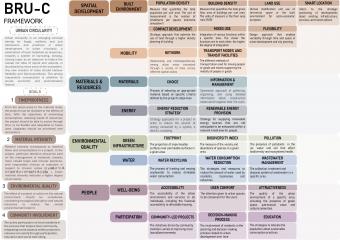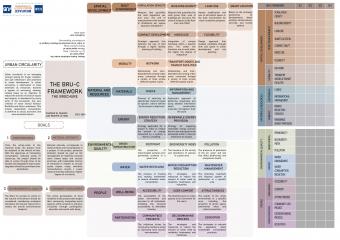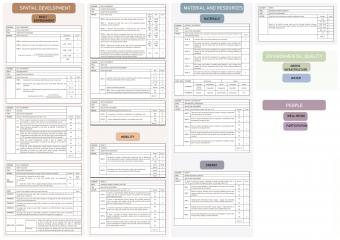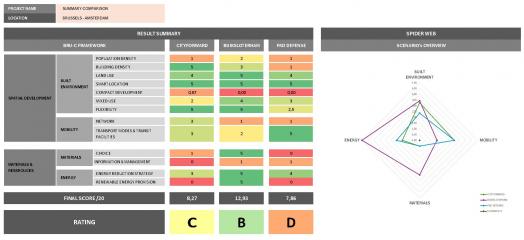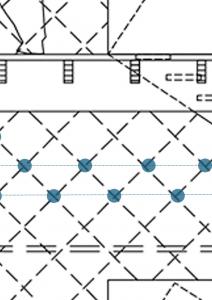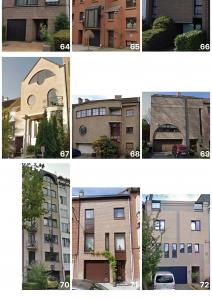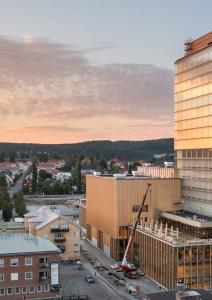The BRU-C Framework
An Urban Circularity Assessment Tool for the Brussels-Capital Region
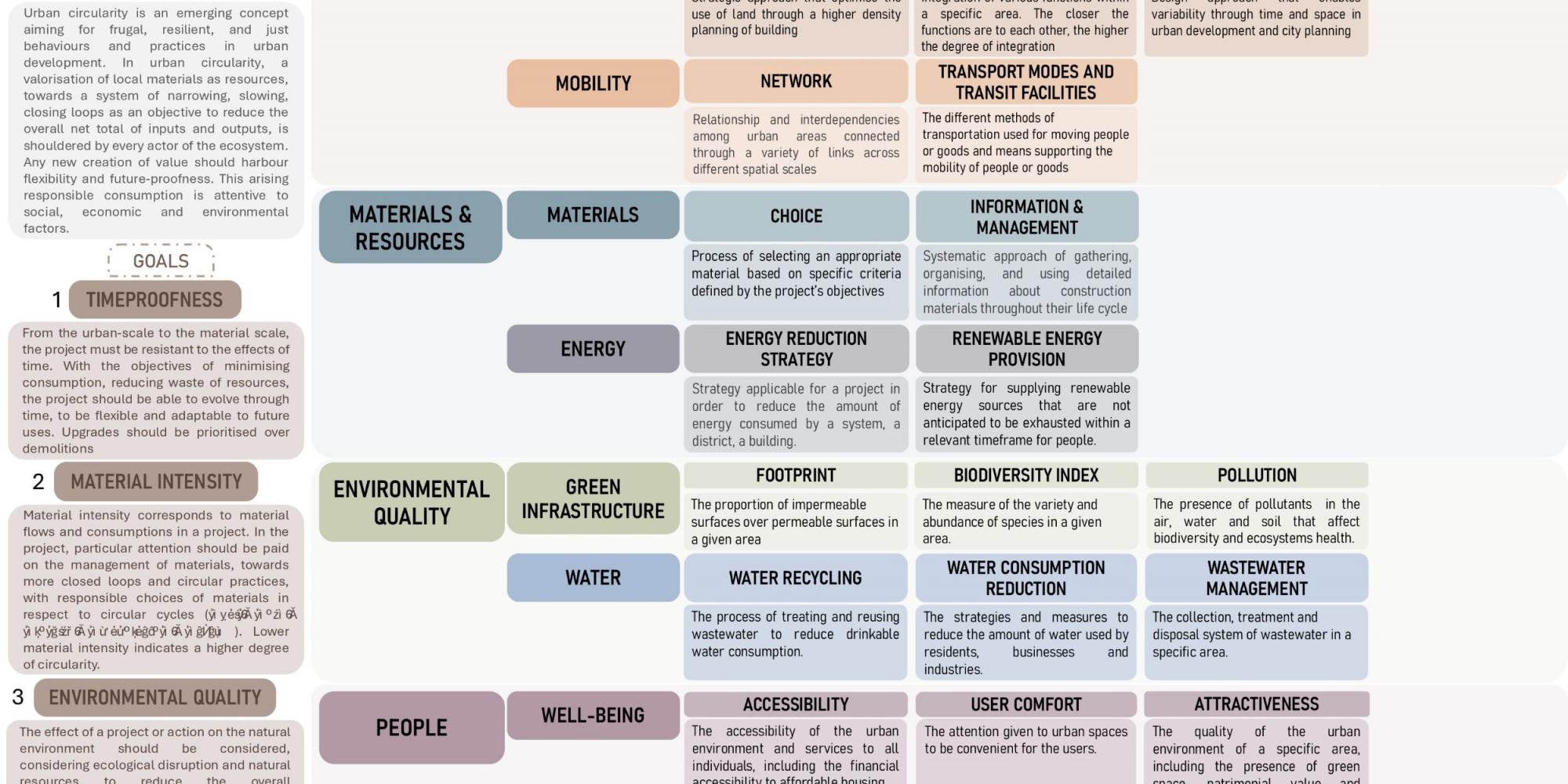
How can a tool be developed to assess the circularity potential of urban projects within the Brussels-Capital Region in early design phases?
The escalating climate crisis has catalysed ambitious environmental targets within the European Union’s building sector. A dual focus on operational and embodied energy consumption underscores the need to overhaul the resource-intensive linear economic model. Transitioning to a circular economy paradigm is imperative, particularly within the complex urban environment. This research responds to the critical gap in frameworks that effectively integrate circular economy principles into urban planning and design. While existing methodologies often rely on extensive data and post-project evaluations, this thesis introduces the "BRU-C" framework, a pioneering approach to assessing circularity in early-stage urban projects based on design data values. By combining qualitative and quantitative analysis, "BRU-C" empowers urban planners to make informed decisions that promote circularity.
Centered in the Brussels-Capital Region, the research involved a rigorous examination of ten existing frameworks, culminating in the development of a tailored assessment tool. Through case studies in Brussels and Amsterdam, the "BRU-C" framework was refined, focusing on four core dimensions of circularity: Spatial Development, Materials & Resources, Environmental Quality, and People. These dimensions were further articulated through eight Design Factors and evaluated using twenty-four criteria. While constraints limited the full development of Environmental Quality and People, the framework offers a robust foundation for assessing and advancing circular practices in urban planning. This research contributes a valuable tool for urban practitioners seeking to embed circularity-inspired ambitions into their urban projects that will build the world of tomorrow. Recommendations for framework refinement and broader application are provided to guide future research and implementation.
- Academic year
- 2024-2025
- Date of defense
- 2 September 2024
- Theme
- sustainable architecture, collaborative design, urbanism
- Director 1
- Ahmed Z. Khan (ULB)
- Director 2
- Giulia Caterina Verga (ULB)

